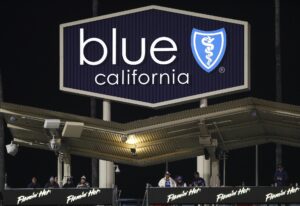Relapse has been called the “dark side of recovery.” According to the National Institute on Drug Abuse, between 40 and 60% of people will experience a relapse–use drugs or alcohol–within the first year after treatment for substance use disorder.
If you are the person who has relapsed, it can feel like the end of the world and like you are a failure. You may feel guilt, shame, and humiliation. You may feel disappointed in yourself and that you have let down people who are close to you, who have supported you. You may be afraid that people won’t trust you anymore, that they won’t believe you or your desire to be sober. You may feel like giving up. So what do you do now?
Process Your Feelings and Seek Support
It may feel counterintuitive, but the best thing you can do now is feel the disappointment and the pain. You need to grieve because you have suffered a loss–a loss of confidence in yourself. What you should not do is call yourself a failure or think that you won’t be able to maintain sobriety. Remember what you learned from treatment and avoid all-or-nothing thinking. One lapse does not doom you to a life of alcohol or drug abuse. Instead, use the negative feelings as motivation to get back on track. See the relapse as an opportunity to learn more about yourself and what triggers you to drink or use drugs.
Although your impulse may be to isolate yourself, reach out to people for support. Contact your therapist, your recovery coach, your sponsor if you are in a 12-Step program, or people from your support group. Chances are very high that they will have been where you are now and they will empathize and offer comfort. Reach out to the friends and family members who will support you and encourage you.
Depending on the nature of your relapse, you may consider reentering treatment. If you had a few drinks after work that probably isn’t necessary. If you went on a month-long bender, it may be.
Analyze What Happened
Although it may be painful to analyze your relapse, you do need to take a close look at what happened. Remember, you are not thinking about what happened for the purpose of beating yourself up; you are examining what happened so you can figure out what to do differently next time. This may be a process that your therapist or recovery coach could help you with, or maybe writing about the experience will help you analyze it.
Ask yourself: What happened? Where were you, and who were you with? How were you feeling? Happy, sad, anxious? What was going on in your emotional state? Do you remember what you were thinking about? What was happening in your life? You may find that you have not been paying attention to self-care. Maybe you had a huge deadline at work and you stopped going to your support group. Maybe you were doing really well with your recovery program and felt that you didn’t need to go to 12-Step meetings for a while. Maybe it was something outside your control, like the COVID-19 pandemic.
Make a Fresh Start
Although it may feel like you are starting all over again, you aren’t. This time around, you know more about maintaining sobriety than you did before and you have more experience. You have first-hand knowledge of what does and doesn’t work for you. You may have more insight into a mental health issue that needs addressing. You are beginning again with more self-knowledge than you had before.
Relapse Prevention
Because so many people experience relapse on their recovery journey, a treatment modality called Relapse Prevention (RP) is offered at many drug and alcohol rehabilitation centers. RP is a cognitive-behavioral approach to relapse that was developed to help people identify and avoid situations that are at high-risk of leading to relapse. According to the rationale behind RP, relapse is a gradual process with several stages. The goal is for the individual to identify the potential to relapse at an early stage and prevent it from happening. The main tools of RP are cognitive therapy and relaxation techniques for the mind and the body.
The Light Bulb Parallel
Although it would be best to avoid relapses, a relapse provides a person in recovery with a vital learning tool. In recovery, as in most endeavors, not everyone achieves their goal on the first try. Thomas Edison made 1,000 unsuccessful attempts at inventing the light bulb. When he finally did, a reporter asked Edison how it felt to fail 1,000 times. Edison replied “I didn’t fail 1,000 times. The lightbulb was an invention with 1,000 steps.” Although it is to be hoped that people in recovery won’t relapse 1,000 times, it’s important to remember that for many people, maintaining sobriety takes more than one attempt.
Relapse Prevention (RP) is an important tool for attaining and maintaining sobriety and it is one of the treatment modalities offered at Promising Outlook, a drug and alcohol rehabilitation center located in Riverside, California. Other treatment modalities offered at Promising Outlook include cognitive-behavioral therapy (CBT), dialectical behavioral therapy (DBT), mindfulness-based stress reduction, motivational interviewing, and psychotherapy. In addition, Promising Outlook offers courses in anger management. The center offers outpatient treatment programs to both men and women aged 18 and up. At Promising Outlook, the staff develops an individualized treatment plan for each patient based on his or her needs and recovery goals. Promising Outlook’s mission is to treat the whole patient, not just their addiction. In particular, the therapists focus on addressing the trauma that has led to substance abuse. If you or someone you know is struggling with an addiction to drugs or alcohol, call 866.980.2869 today.







